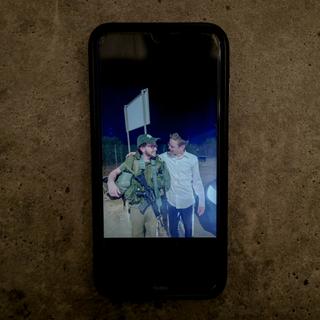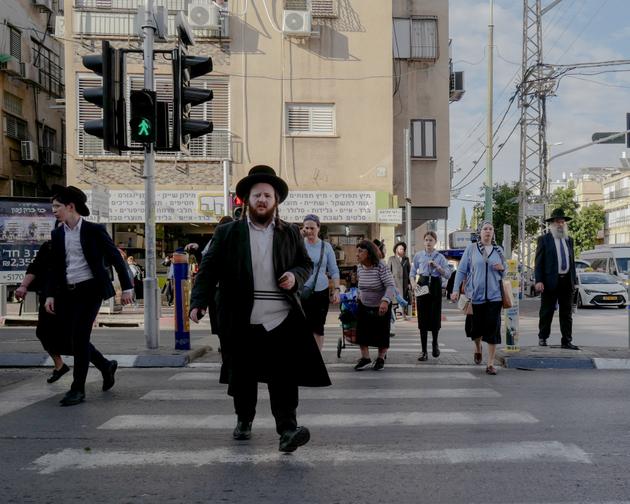


Ultra-Orthodox Jews join Israeli army to defend their country
InvestigationSince the October 7 attacks in Israel, hundreds of Haredi Jews – traditionally opposed to the army – have voluntarily joined up, despite their religious convictions.
In Israel, they're sometimes referred to as the "men in black." With their black suits, white shirts, tzitzit (fringes) on their hips and wide-brimmed hats, ultra-Orthodox Jews wear an unchanging uniform, whatever the season. But since the Hamas attacks on their country on October 7, something has changed. In less than a week, and contrary to their custom, several hundred Haredim (the "God-fearing") have considered temporarily swapping their black and white uniform for that of the army.

Is it a revolution? A simple change? A passing phenomenon? As is often the case, rabbis disagree among themselves, but one thing is certain: The volunteers in question are violating the implicit rules of their community. Although the movement remains limited to some 3,000 people, of whom only 350 are currently serving in the armed forces, their signing on is making headlines in a society where ultra-Orthodox Jews have long lived apart from the military.
One of them, Natan Rakow, was assigned to the Shivta camp in the Negev desert. He made it clear from the outset that he was not drafted into a combat unit, but into a section tasked with helping civilians. For the 36-year-old father of three, the idea of "being part of a community of citizens" at a difficult time for the country outweighed any religious concerns. When he joined the base, he knew he wouldn't be eating kosher as strictly as usual, and that he might even run into women; or, as his religious practice would forbid, that he might hear them singing (the national anthem, for example). But none of this was enough to dampen his desire to "help." In fact, he even went so far as to return home in uniform, a rare occurrence in an environment where the army is not held in high esteem. In the past, Haredim have been assaulted when they dared to appear in soldier's uniform in predominantly Orthodox neighborhoods.
Crossing the invisible divide
Like others, Rakow volunteered at the very start of the conflict. The army, which was calling up its 350,000 reservists at the time, decided to quickly train these men who had not done military service. "Within a few hours, there were already more than 450 of them," said Ram Moshe Ravad, a rabbi in the Air Force, who said he personally selected 1,560 of them. Not all would be drafted, but all had crossed an invisible divide by voluntarily approaching the army.

To fully appreciate how far the situation has come, we have to go back to the beginning. And first, Haredi Jews should be defined. Haredi Jews, who represent around 12% of the Israeli population, are distinct from religious Zionists, who are more open to modernity but, above all, very nationalistic (they are the ones, for example, who are found in the settlements). The Haredim, by contrast, do not adhere to the Zionist ideal: too secular, too opposed to their exclusively religious vision of the world, centered on waiting for the Messiah. Hence their reluctance to serve in the army even before the country's official birth in May 1948.
You have 70% of this article left to read. The rest is for subscribers only.
